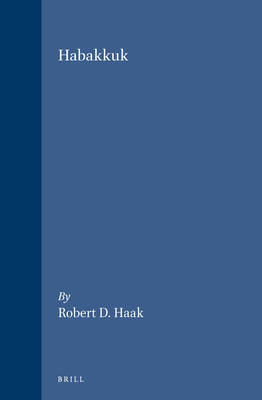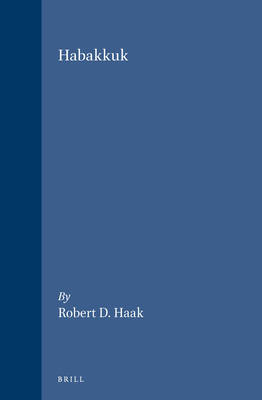
- Afhalen na 1 uur in een winkel met voorraad
- Gratis thuislevering in België vanaf € 30
- Ruim aanbod met 7 miljoen producten
- Afhalen na 1 uur in een winkel met voorraad
- Gratis thuislevering in België vanaf € 30
- Ruim aanbod met 7 miljoen producten
Zoeken
€ 245,95
+ 491 punten
Omschrijving
The 7th century was a time of turmoil in the Near East. The demise of the long-dominant Assyrian empire led to struggles among the remaining powers. The small nation of Judah experienced conflict and confusion as it tried to survive the rapidly changing situation. Habakkuk examines the prophecy of Habakkuk to determine the role which this prophet played in the complex struggles of the period.
Habakkuk begins with form- and text-critical examinations of the prophecy attributed to Habakkuk. These studies provide a clearer understanding of the text and enable the placement of this work within its historical context. A review of the international and internal political situation indicates that the prophecy relates to a specific period within late 7th-century Judah and that its author supported particular persons and policies within this setting. This recognition allows an examination of the roles which Habakkuk and other prophets played within Judahite society.
Habakkuk begins with form- and text-critical examinations of the prophecy attributed to Habakkuk. These studies provide a clearer understanding of the text and enable the placement of this work within its historical context. A review of the international and internal political situation indicates that the prophecy relates to a specific period within late 7th-century Judah and that its author supported particular persons and policies within this setting. This recognition allows an examination of the roles which Habakkuk and other prophets played within Judahite society.
Specificaties
Betrokkenen
- Auteur(s):
- Uitgeverij:
Inhoud
- Aantal bladzijden:
- 188
- Taal:
- Engels
- Reeks:
- Reeksnummer:
- nr. 44
Eigenschappen
- Productcode (EAN):
- 9789004095069
- Verschijningsdatum:
- 2/10/1991
- Uitvoering:
- Hardcover
- Formaat:
- Genaaid
- Afmetingen:
- 165 mm x 240 mm
- Gewicht:
- 489 g

Alleen bij Standaard Boekhandel
+ 491 punten op je klantenkaart van Standaard Boekhandel
Beoordelingen
We publiceren alleen reviews die voldoen aan de voorwaarden voor reviews. Bekijk onze voorwaarden voor reviews.








